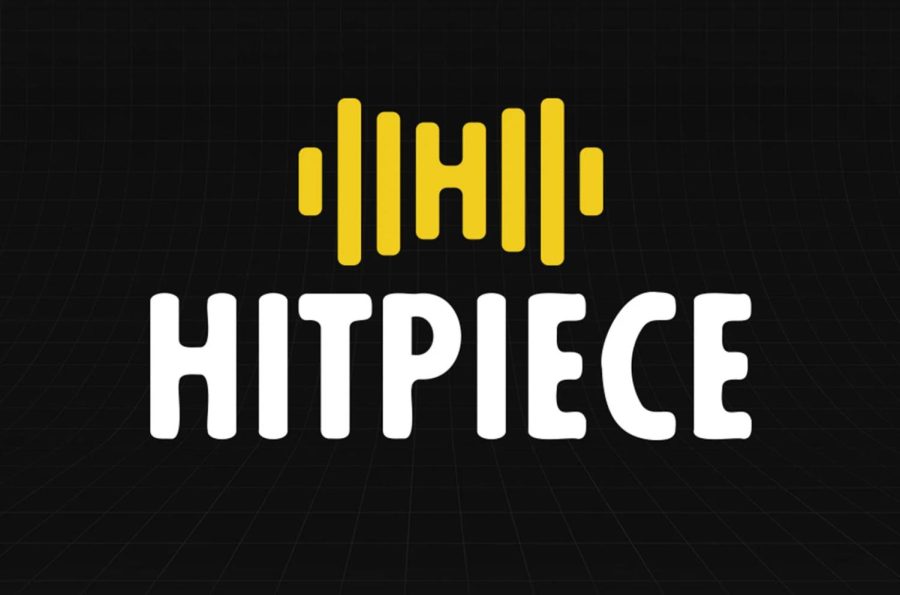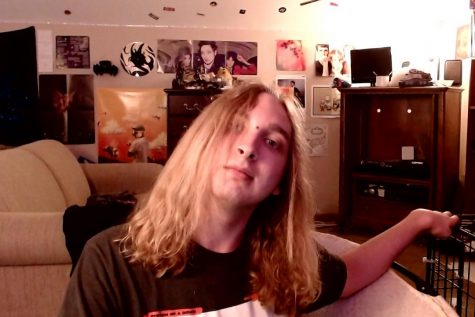Music NFT Platform “Hitpiece” Comes Under Fire for Stealing Art
The music sharing platform, which sold and auctioned the songs of artists without their knowledge, is temporarily inactive after immense backlash.
March 7, 2022
For those who have found themselves on social media as of late, you may have come across the term “NFT” before. The term, which stands for “Non-Fungible Token,” can be roughly as confusing as it sounds. To summarize, NFTs refer to sets of data (the token) that are created and encrypted onto a cryptocurrency-based system of recording transactions, called a blockchain. These tokens are connected to a piece of digital media, often an image, with the token itself acting similar to a receipt of purchase. In other words, the person who buys the NFT is, essentially, purchasing data that says they purchased that data. Even if it relates back to the digital item, it does not mean that they are the owner of the item, and rather means they are the owner of the data that is connected to that item.
Regardless of your personal stance on NFTs, this method of selling something connected to a digital good, rather than the digital good itself, has proven to open up to a unregulated market that enables minters to take the art of others, and mint it onto the blockchain without the artist’s consent, and taking the profit of that NFT as opposed to the original artist. The latest, and likely most egregious example of this to date, comes in the form of the newly-created music sharing platform, Hitpiece..
Hitpiece, a program with the goal of selling songs as NFTs, came under fire from the public for taking hundreds, if not, thousands of songs from non-consenting artists to be sold on the platform, with none of the money of these songs going back to the musician, and rather back to the person who minted the song. This means that real people were selling, and even auctioning + purchasing tracks that had been minted on the blockchain for thousands, and, in extreme cases, millions of dollars, all without the artist’s knowledge or consent.
This major problem of stealing art and valuing it at a much higher price than it would normally be was later stopped due to fans of these artists reaching out over social media, which allowed for artists and labels to get in on the situation at hand. In fact, the owner of the record label Triple B noted that; “Had this controversy not exploded on Twitter, I wouldn’t have known our entire catalog is on here. 160 releases worth. None of my bands were contacted directly and neither was I.”
This was in response to an apology, seemingly over Notes App, from the brand. They state, “(We) are very eager to create the ideal experience for music fans. To be clear, artists get paid when digital goods are sold on Hitpiece. Like all beta products, we are continuing to listen to all user feedback…”
You can view the full post on their Twitter page, linked here.
Another musician, who is most known for their comedy song covers on YouTube, TheRealSullyG, hit back at this by attempting call out the platform for not being able to hold up to the prices that it allowed its users to sell at – “You’ll pay me (the $21 million worth of bids on a single song of his), right? Since you’re committed to fitting the needs of me, the artist.”
Hilariously, even a label that put out a pro-NFT cover song, also reached out against this platform after their song was minted without their knowledge. Additionally, the band clipping., who also released The Sandscript’s top album of 2020, was a victim of this website.
As of the time of writing this, Hitpiece is still defending itself by claiming that it is still in a beta state. The website is still up, but inactive, with the phrase “We Started The Conversation, And We’re Listening” being displayed on the front page.
Though this is just one of many widespread occurrences of people taking the art of others and reselling them as NFTs, this has continued to be a problem before and after this website’s existence. Any creative person who creates digital art or content, be it songs, images, videos, or the like, should do their best to remain vigilant in verifying that their art is not being stolen, recognizing the tools they have to do so, and being able to protect their art as much as possible. Additionally, consumers of an artist should make the artist aware if they believe that an art piece is being sold without their permission until the NFT market can, hopefully, become much more regulated into the future.






Jake Pacilio • Mar 12, 2022 at 12:12 am
Nice job explaining what NFTs are and making the article very clear.
Carl • Mar 11, 2022 at 2:16 pm
I like how you used evidence and limited your personal opinion of the topic.